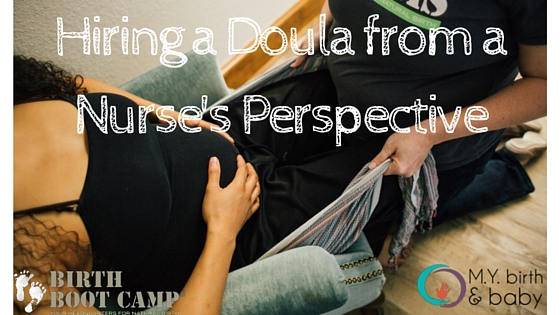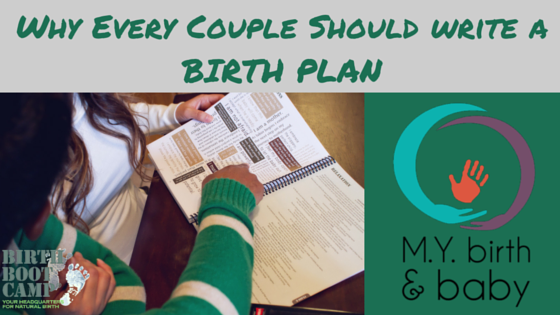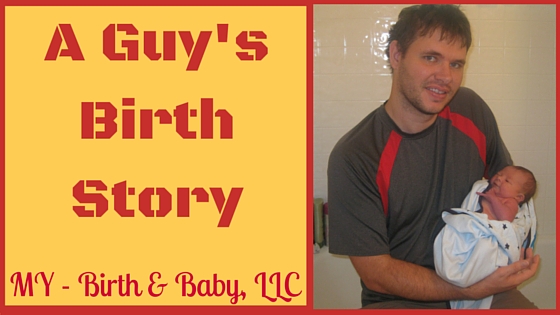Where do I start? My wife asked me to write my birth story. I am thinking in my head “My birth story? I didn’t give birth? What right do I have to say my birth story when my wife gave birth?”
First some background of how I used to think: I am the youngest of seven; we were all born in the hospital. My 3rd oldest and myself are the only ones born natural with no drugs. I actually was born after a cesarean (VBAC baby). I didn’t know that this was a big deal, but now it is apparently.
Home births growing up were not that common. My family was on the poor to middle class side of things. My first hearing of a homebirth was from my cousin, I thought “Why? Isn’t that dangerous? Couldn’t the baby die? I think that’s stupid and careless.” When I heard that the home birth went just fine . . . I thought, “well she’s just lucky, I guess.”
Then I lived in Germany for 8 years. Midwives and homebirths are common there. Pregnant women are usually taken care of by midwives. Doctors take over only when surgery may happen, or the midwife consults them.
Home birth, Say what?! When we decided to have a baby, my wife said that we would be having a homebirth. I said “Why? What’s wrong with a hospital? It’s safe.” She said “Why not at home? It’s safe to have a homebirth.” She told me that only if she was high risk, then we would go to the hospital, but otherwise we can have it at home on our bed. I thought, “Oh great. On our bed with blood and mess and gore to clean up.”
She bought me some great books for first time/soon to be dads. She also signed us up for Birth Boot Camp. I thought, “I am so not into this . . . Do I have to? Look you’re the pregnant one, you go and I will stay back or I will just get in the way, I won’t know what to do . . .” Up to this point, I didn’t understand birth, my role, or my responsibilities . . .
Birth Boot Camp: We started going to Birth Boot Camp childbirth classes. It was a game changer. I learned the beauty behind birth, our options, and a fountain of birthing knowledge. It let me know that my wife was not going to do this alone and that I had a role. I was going to be there and that I needed to be there. I learned just how powerful women can be. I also gained the reassurance that women have been having babies for thousands of years – and often in their HOMES!
My Birth Story: On the night that it all started, I had worked all day and I was relaxing on the sofa. My wife was taking off to a Dancing for Birth class. Perfect time to relax. When she came home, it was around 8:30 at night and she said she was having some contractions. So I asked if they were the real ones or the Braxton Hicks contractions. She wasn’t sure, but decided to take a bath to see if they would calm down. It didn’t. She came out of the bath and said she was still having them.
So, I thought of what I learned in class – GO TO SLEEP AS SOON AS IT BEGINS! So I say ok so we should try to get some quick sleep; notify the midwife. She said to forget the sleep; yes, call the midwife; and my back is hurting. So now I am calling the midwife and setting up the birth bath (remember to put in the liner, I totally forgot). She was having back labor (It turned out the baby’s back of head was facing her spine, instead of her stomach, but we didn’t know since the baby was always in the right position before). Around 11:00 PM we called the midwife again thinking that she was getting close to delivery and so she should come over.
My wife was in and out of the birth pool, forehead to the wall, laboring on the toilet, and the bed trying to relieve some of the back pain. I was pushing on her lower back non-stop; and when I had to pee, I would run to the toilet and before I could start she was calling for me to come and put pressure on her back. Her favorite word that night was “JEFF!” The night was a blur, morning came, and still she was not getting any closer to giving birth. She was 6 centimeters around 6 AM. I was thinking, “How is this possible? My muscles are throbbing, and my mind is dead.”
The midwife and her assistant took turns taking naps; and when I would accidentally fall asleep, they poked me while I was in the birth pool when my face was about to hit the water. My wife would also lovingly tap (AKA slap) me when she felt me falling asleep and the counter-pressure would stop.
The midwife and her assistant kept trying to get us to eat, but my wife was having none of that. She was nauseous. My wife finally got some IV fluids and we both laid on the floor and got maybe an hour of sleep before it kicked back into full labor again. Back to the pool, then to the bed, the wall, the pool . . . and it kept like this for I don’t know how long. My wife’s mother was there, laying down towels and washing the wet ones. She must have done at least 20 loads of towels. I continued to push on her lower back, knowing that was what was needed.
Around 1:00 PM, the power went out. We assumed that it would come back on shortly. At 3:00 PM the midwife called the power company and told the worker on the phone that she was in the middle of a birth. Power came back on like 5 mins later.
Finally, my wife was fully dilated!! Then, the pushing started. I think she pushed for about 3 hours. At one point, the midwife attempted to break her water to help with pushing. This didn’t really work. At some time around 4:00 PM, I think, my wife started saying “I can’t do this. I am done.” I stayed with her saying “yes, you can.” (This was the reason for me to be there; to be her support).
In the end, it was on the toilet that the most progress was gained. We saw my son’s hair just barely sticking out. The midwife told my wife that we needed to move her to the birth chair and that she couldn’t have the baby on the toilet. My wife simply said “Watch me.” The midwife, her assistant and I all grabbed her, lifted, and moved her quickly to the chair. I think the midwife told her to slow down, but I don’t remember. My wife was done and wanted the baby out, so slowing down was not an option. She powered through the contraction and out came my son at 6:02 PM. I didn’t know what to do when he was coming out or how to catch him, but the midwife was on spot. The cord was wrapped around him 3 times. He was fine though. He was bloody from my wife tearing, but he was so amazing. I had tears coming down my face. So happy to see him, and so happy that the marathon was over. My wife tore fairly badly due to my son being “sunny-side up”, or occiput posterior. The birth was over 21 hours; time well spent.
Afterbirth: I know now that birthing in the hospital is not the only way, and neither is being at home. Your birth location should be wherever you are comfortable. For us, it was home. I would never recommend doing a homebirth without taking an actual comprehensive birth class. I will also never do another birth without a doula. A doula could have told us better positions to try, to make my wife more comfortable, and maybe even speed up the labor! She could have also given me a BATHROOM break!
It has been 15 months since the birth. I still feel and see the birth when I think about it. It was a challenge that we accomplished together. To me, birth is both man and woman, together in unison, working to bring a new life into the world. As men, and soon-to-be fathers, we need to learn our part. Being that guy in the waiting room is like missing out on your wedding kiss. I know I will never be that guy. I will be there and I will be involved (with the help of my doula)!
30.402978
-92.215125







